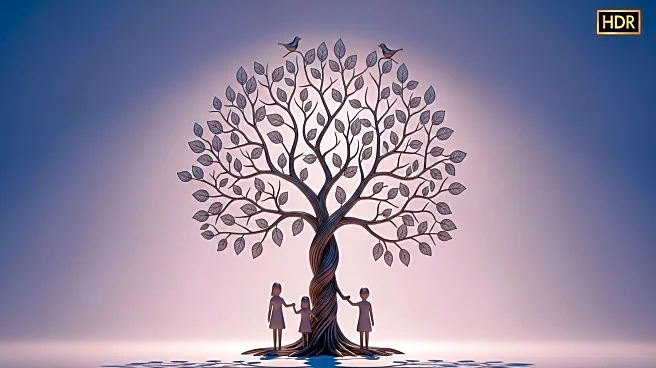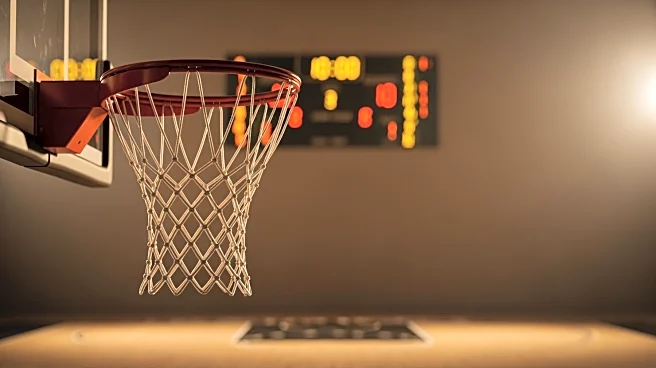What's Happening?
Jane Hamilton's latest novel, 'The Phoebe Variations,' delves into the complexities of family and friendship through the eyes of its protagonist, Phoebe Hudson. Set in the 1970s, the story follows Phoebe, a musically gifted teenager, as she navigates her relationship with her adoptive mother and her birth family. The novel explores themes of identity, purpose, and the intricacies of human connections, particularly focusing on the bond between Phoebe and her best friend, Luna Barker. Hamilton's narrative style offers a reflective look at how past experiences shape one's present and future, providing readers with a rich tapestry of emotional and intellectual exploration.
Why It's Important?
Hamilton's novel is significant as it addresses universal themes of belonging and self-discovery, resonating with readers who have experienced similar familial and friendship dynamics. The book's exploration of identity and purpose, especially for women, offers insights into the societal expectations and personal challenges faced during adolescence and beyond. By weaving a narrative that spans decades, Hamilton provides a nuanced perspective on how relationships evolve over time, highlighting the enduring impact of formative experiences. This novel contributes to the broader literary discourse on the complexities of human relationships and the search for meaning in life.
Beyond the Headlines
Beyond its immediate narrative, 'The Phoebe Variations' prompts readers to consider the ethical implications of using personal experiences as fodder for storytelling. Hamilton's portrayal of friendship and its transformation over time raises questions about the nature of loyalty and the authenticity of self-help narratives. The novel also touches on the cultural shifts of the 1970s, offering a backdrop that enriches the story's exploration of identity and societal change. As readers engage with Phoebe's journey, they are invited to reflect on their own relationships and the ways in which personal history shapes one's worldview.









